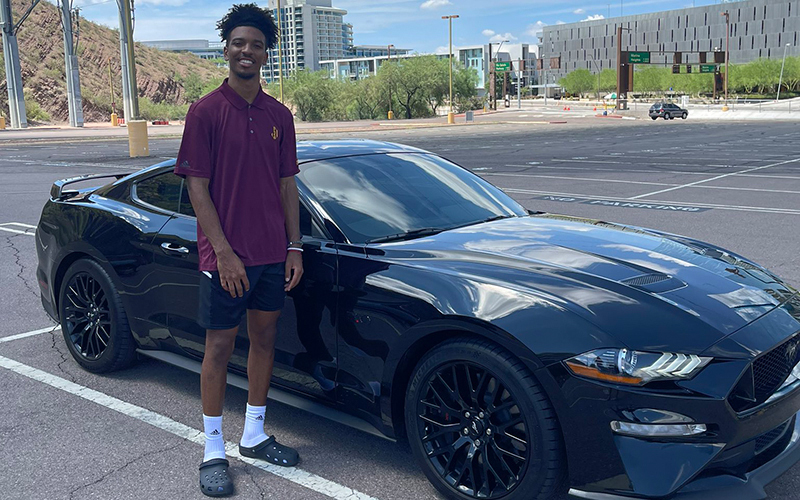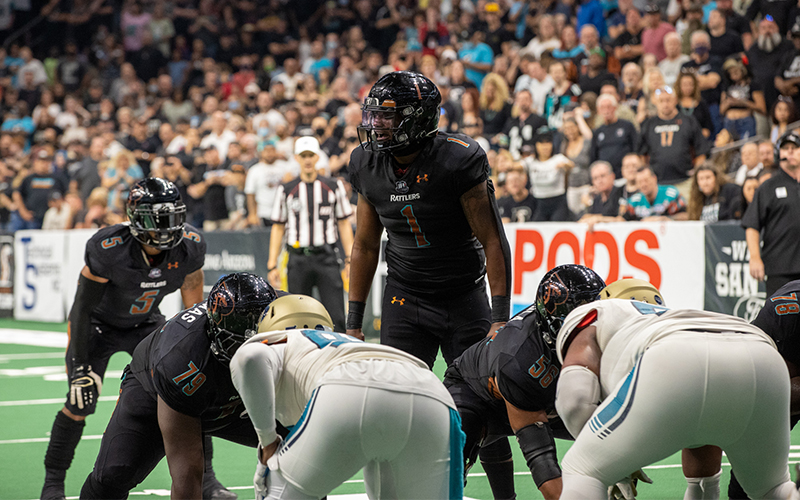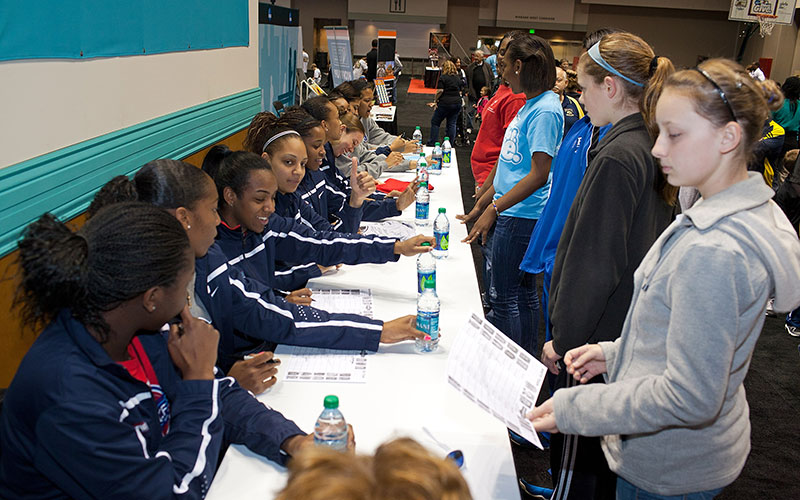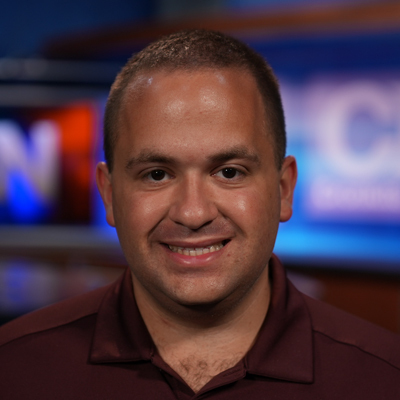
When Arizona State quarterback Jayden Daniels formed a partnership with Parker Jones and The Jones Auto Group and capitalized on name, image and likeness opportunities, he announced it on Twitter and showed off his 2020 Ford Mustang. (Photo courtesy of Jayden Daniels)
PHOENIX – Each morning at the Kajikawa Practice Fields in Tempe, the cheerful chirp of pre-practice sound is broken by the deep growl of a Ford V8 engine. A sleek, black coupe rumbles through the parking lot, past the Verde Dickey Dome and the open gates to the practice fields, before reversing into a spot.
Arizona State junior quarterback Jayden Daniels cuts the engine and steps out of his 2020 Ford Mustang GT Premium, a gift of the Jones Auto Group.
Once upon a time, this was a scene that would launch scandals and NCAA investigations.
Today, it’s just an example of the opportunities available to high-profile college athletes like Daniels, who are cashing in on endorsement deals, circumstances that have the attention of professional players who never had a similar choice.
“(Name, image and likeness deals) would have gotten me more prepared from a professional standpoint for sure, being able to handle endorsements, money, things like that,” said Jamal Miles, a former Arizona State receiver and return specialist who now plays for the Arizona Rattlers of the Indoor Football League, “Not being able to do that (in college), you just kind of learn on the fly once you get to the pros. That’s been an experience.”
Daniels, perhaps ASU’s most popular athlete on campus, represents a new generation of college athletes who are taking advantage of new NCAA legislation passed over the summer that enables them to profit off selling the right to use their names, images and likenesses in advertising and promotions.
Long gone are the classic ideals of amateurism, which viewed student-athletes as non-professionals who should compete strictly for glory and without compensation, other than a scholarship, in college.
On July 1, the NCAA Board of Directors passed the legislation that enabled name, image and likeness (NIL) deals without eligibility consequences. The legislation, a mix of state laws and NCAA rule changes, differs from state to state, but Arizona’s NIL law – SB 1296 – was approved by Gov. Doug Ducey in March and took effect on July 23.
The change in legislation shook the collegiate athletics landscape. For many of the nation’s most powerful programs in college sports, especially football programs, the rewards for the rule changes have been a cornucopia of brand deals and partnerships.
The early standout of NIL deals was Alabama sophomore quarterback Bryce Young who, according to Alabama coach Nick Saban, had already acquired nearly a million dollars in NIL money before he had even taken a single in-game snap in the first weeks of August.
The sudden shift is a dramatic change from the days when collegiate athletes could only imagine the potential riches – or at least a new Mustang – previously reserved for professionals. Agents, contracts and endorsement were the domain of only the best players and only after they reached the next level.
Players like Miles are left to wonder how the new NIL rules might have helped them during their time in college. Miles, who played at ASU from 2009-2012, is in his third season with the Rattlers. He also had stints with the Jacksonville Jaguars of the NFL and Edmonton Eskimos of the CFL. As one of the most experienced players on the Rattlers roster, Miles has advice for young players navigating the altered collegiate landscape.
“Be responsible, especially responsible with your money and how you handle things,” Miles said. “Don’t get carried away because you (receive) money and you start doing things you’re not supposed to be doing. Keep your focus.”
Miles, who started his career at ASU during its Pac-10 Conference days, may not have experienced the benefits of NIL legislation, but he did enjoy the benefits of a scholarship and playing for a nationally ranked program.
Every athlete in major college programs benefits from world-class facilities, meal plans, top-notch medical care and athletic training.
Miles rarely found himself hungry or struggling to take care of his body while playing at ASU. His Rattlers teammates, defensive back Dillion Winfrey and quarterback Drew Powell, played at much smaller FCS and NCAA Division II schools, where their experience was less than luxurious.

Arizona Rattlers quarterback Drew Powell, a onetime standout at Division II at Livingstone College, said he would have welcome an NIL deal with a restaurant when he was at school. (Photo by James Franks/Cronkite News)
“I would have definitely pursued food deals in college,” said Winfrey, who played at Central Arkansas, an FCS program. “It was definitely a hard time eating and eating (healthily for performance). The cafeteria got redundant. I would seek out places like Whole Foods, or grocery stores, something in that (area).”
Powell, a former standout at Livingstone College, a Division II program in Salisbury, North Carolina, experienced similar hunger pangs.
“I definitely would have needed some food,” Powell said. “I always used to go to (fast food restaurant) Cookout when I was in college, so probably not the healthiest choice, but if they were sponsoring me back then, it would have been (helpful).”
Regarding food partnerships, members of the 2021 Sun Devils are quite familiar with the topic. Daniels accepted partnerships with Fry’s, one of the largest grocery chains in the Valley, as well as local pizza chain Venezia’s.
Daniels even has his own specialty pizza on Venezia’s menu, the “JD5,” topped with pepperoni, crumbled sausage, bacon, mushrooms and extra cheese. It’s the second-most expensive pizza on the menu, starting at $17.99 for a small.
Daniels can afford to order it. He earns a small slice of the profit from each pie sold.
Elsewhere on the roster, junior center Dohnovan West partnered with Lomelo’s Meat Market, a butchery based in Kendall, Florida, that ships Japanese-style wagyu beef nationwide. The 6-foot-4, 300-pound center also partnered with local meal-prep company Healthy Chef PHX.
Redshirt freshman receiver LV Bunkley-Shelton partnered with It’s Just Wings, a local chicken wing joint with 13 locations around the greater Phoenix area.
Clearly for the Sun Devils, the hunger concerns that burdened Winfrey and Powell aren’t a problem. However, while they might not have to worry about their next meal, college athletes like Daniels are still adapting to the doors that have opened up to them.
Like the ones on that Mustang, for instance.
“It’s a different world,” ASU offensive coordinator Zak Hill said earlier this season. “Overall, it’s some simple things that (Daniels) can do that allows him to earn a little bit of money and create some partnerships. It’s been good so far for us and for Jayden and hasn’t been much of a distraction.”


